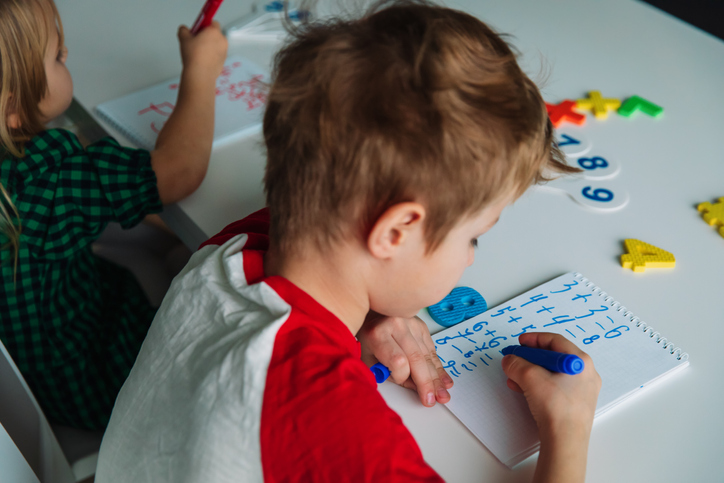
“Mathematics is the music of reason.” (James Joseph Sylvester)
You want your child to do well in school — and a focus on building math readiness skills can go a long way toward their academic success. As one researcher put it, “school math achievement is a good predictor of whether students in P–12 education stay on track toward two-year or four-year college education.”
Because it’s hard to understate the importance of a solid understanding of math, the question becomes how to help children learn math skills in the best ways, as well as what techniques to avoid. In Psychology Today’s article, The Joy of Neuroscience, the writer shares brain research that reveals how, when the fun stops, learning does, too. “Instead of taking pleasure from learning, students become bored, anxious, and anything but engaged.”
So:
- Math skills are very important for overall academic success.
- Children learn much more effectively when having fun.
- It makes sense to use fun activities to increase your child’s math IQ.
Fun Activities to Consider
It makes good sense to introduce your child to math games at a young age, even before flashcards are age-appropriate. You could try keeping an emphasis on fun while focusing on games that allow your child to recognize shapes, sort items and count numbers.
Math games that we’ve found to be effective in our classrooms include:
- Going on a walk together and having your child call out numbers seen on license plates and signs
- Using coloring books that include connect-the-dots pages
- Giving children blocks and having them count the blocks and sort them by color or shape
- Playing memory games where pictures or patterns must be matched
MrElementaryMath.com offers more ideas, including to put objects into a paper bag and then have your child guess how many are inside. After a guess is made, your child can count the objects to see how close the guess was. The goal, of course, isn’t for your child to be able to guess exactly (even adults can’t do that!) but to enjoy guessing and counting.
The article notes how it can be helpful to dovetail the games with your child’s interests. So, for example, if your child is fascinated with dinosaurs, pull out favorite books on the subject and ask them to count the dinosaurs on the page, name the colors, determine which one is biggest (or smallest) and so forth.
Keep counting books on hand, as well. Scholastic names the 10 must-have counting books for young children, and here are three of them:
- Anno's Counting Book, by Mitsumasa Anno
- My Granny Went to Market, by Stella Blackstone
- Doggies, by Sandra Boynton
There are also online math games for preschoolers that can be quite helpful. Education.com compiled many of them that are designed to “spark your child’s love for math right from the start . . . Little learners will have a blast developing fundamental math skills like number and shape recognition with the help of bright animation and friendly characters that bring the concepts to life.”
Education.com also provides online matching games for young children and, if you’d prefer to have your child learn matching skills using physical objects, there are plenty of enjoyable options available.







